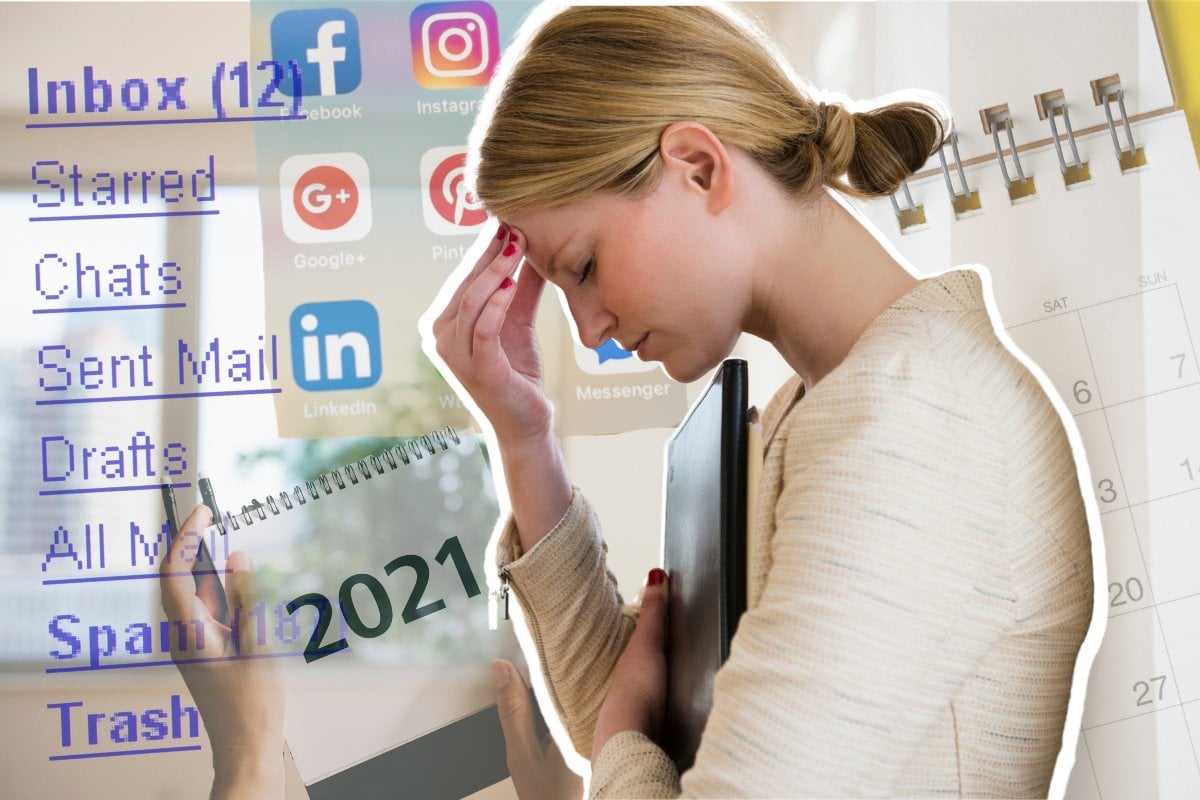
In 2020, it often felt like the days blurred together in a repetitive haze.
With the global pandemic in full swing, mental illness spiked to a level we had never seen before, and our typical workday routines were upended to allow for working from home.
It was thanks to this, that many of us set forth a date, both consciously and subconsciously, for change.
Jan 1, 2021.
Side note: Here's how to combat burnout. Post continues below.
On the best of years, New Year's Day comes with a hell of a lot of *positive* expectations.
But in 2021 in particular, you may have fallen victim to dreaming of big changes, when, in reality we are still in the middle of a pandemic with no clear end in sight.
This combined with a return to work, no real holidays and a few weeks of little progress on our new year's goals, the potential for early year burnout is high.
So, we had a chat to clinical psychologist, Dr. Amanda Gordon, to work out the six strategies you can use to keep momentum and avoid burnout on your return to work in 2021.
